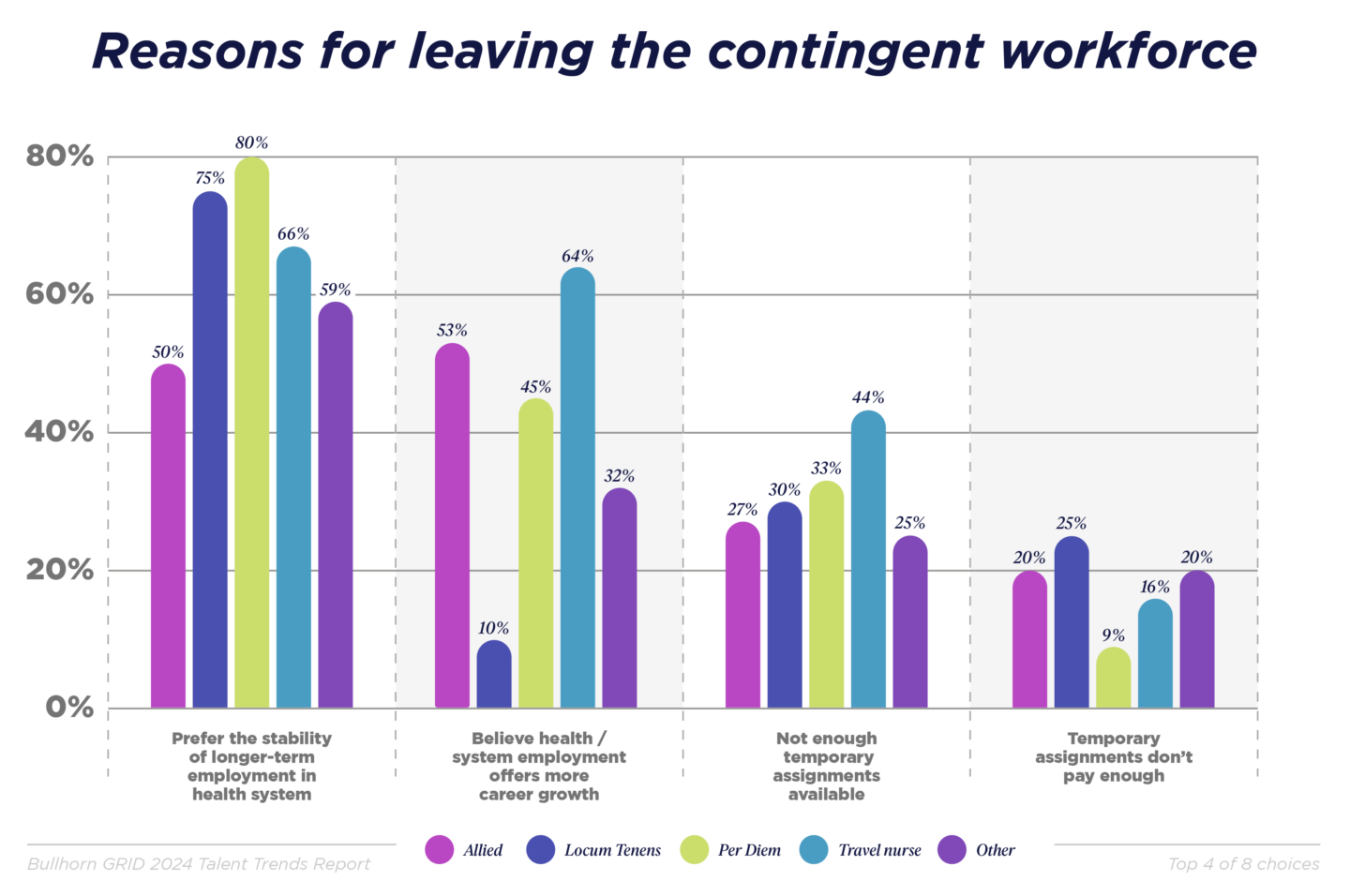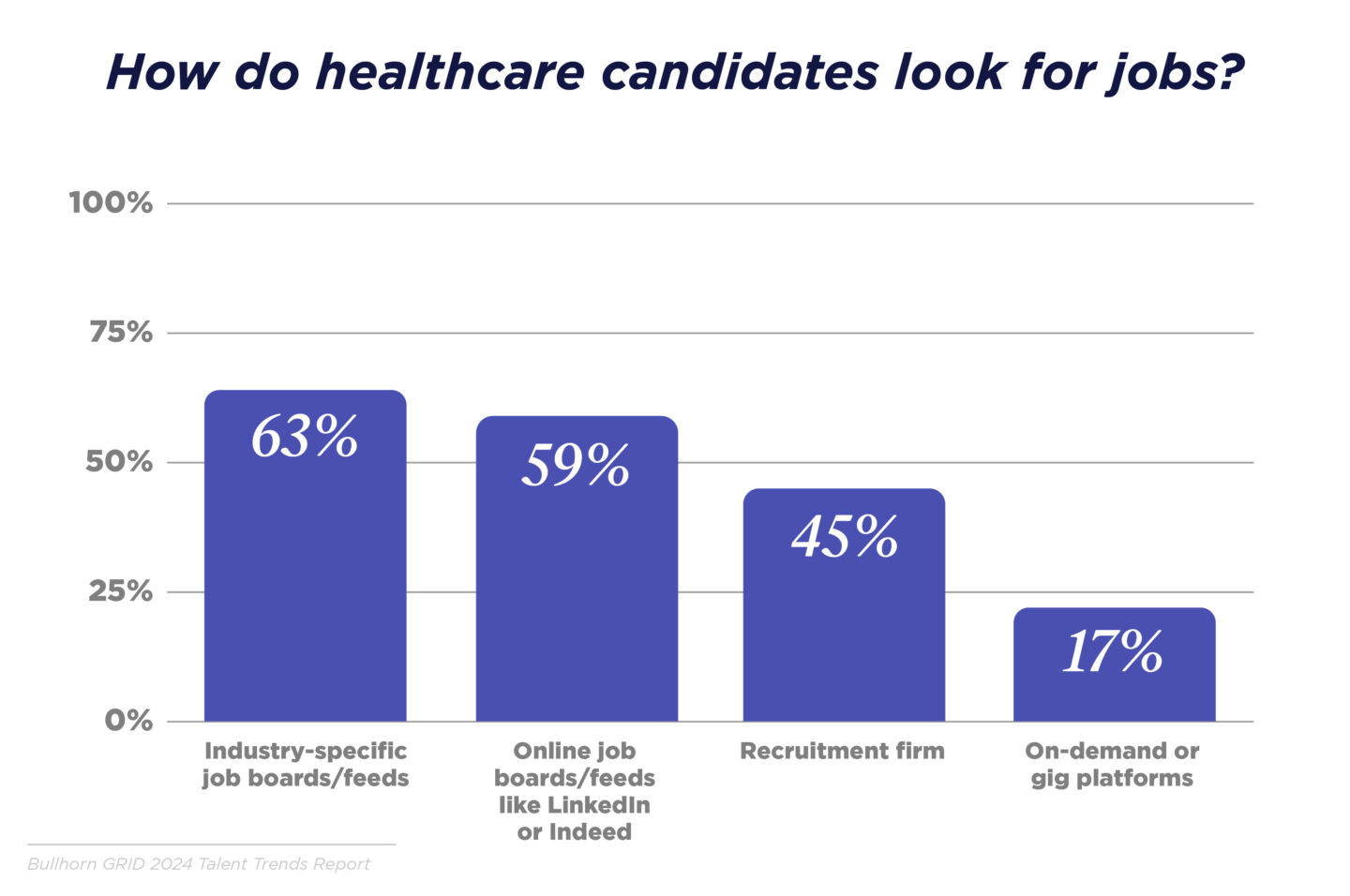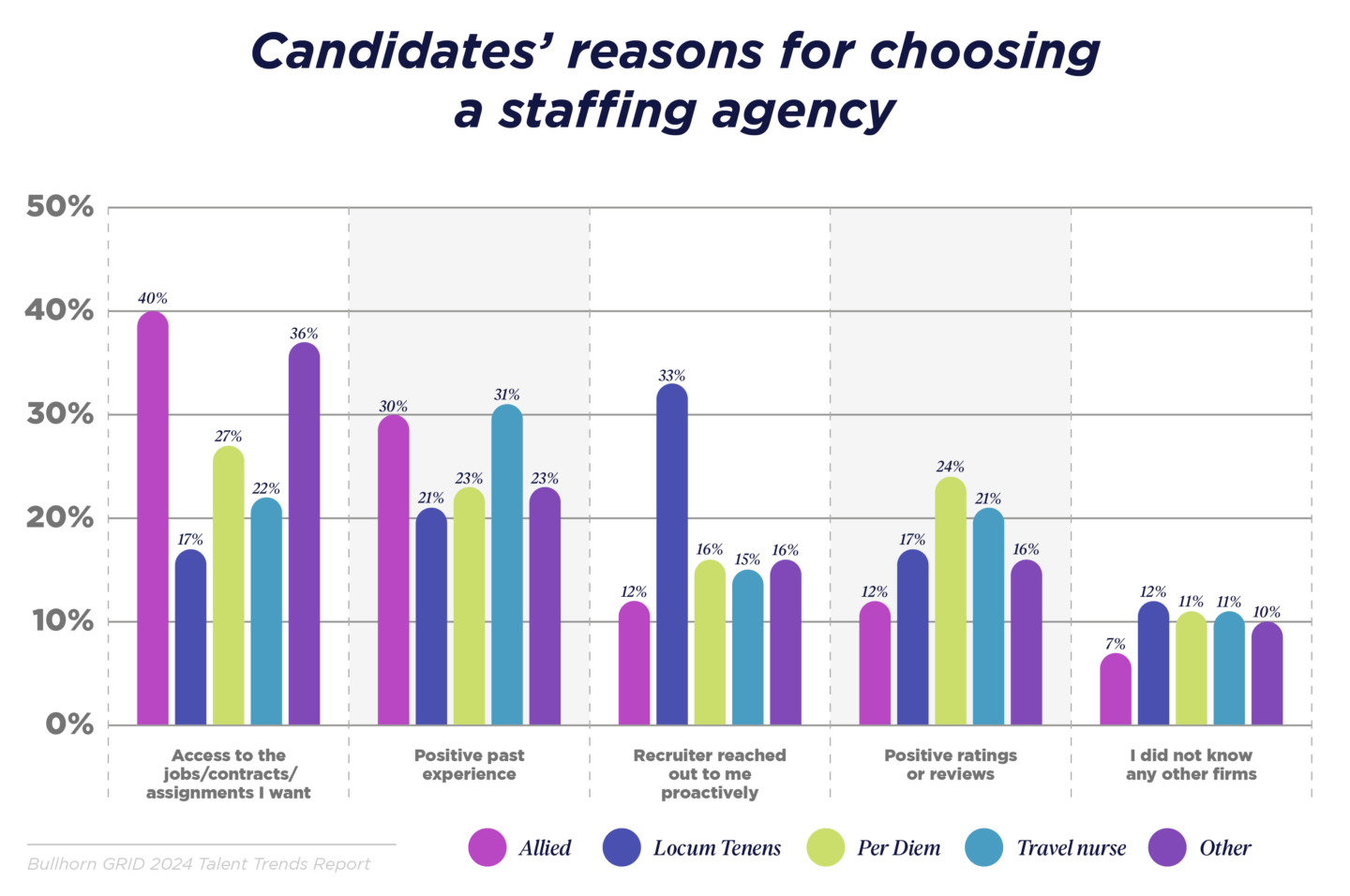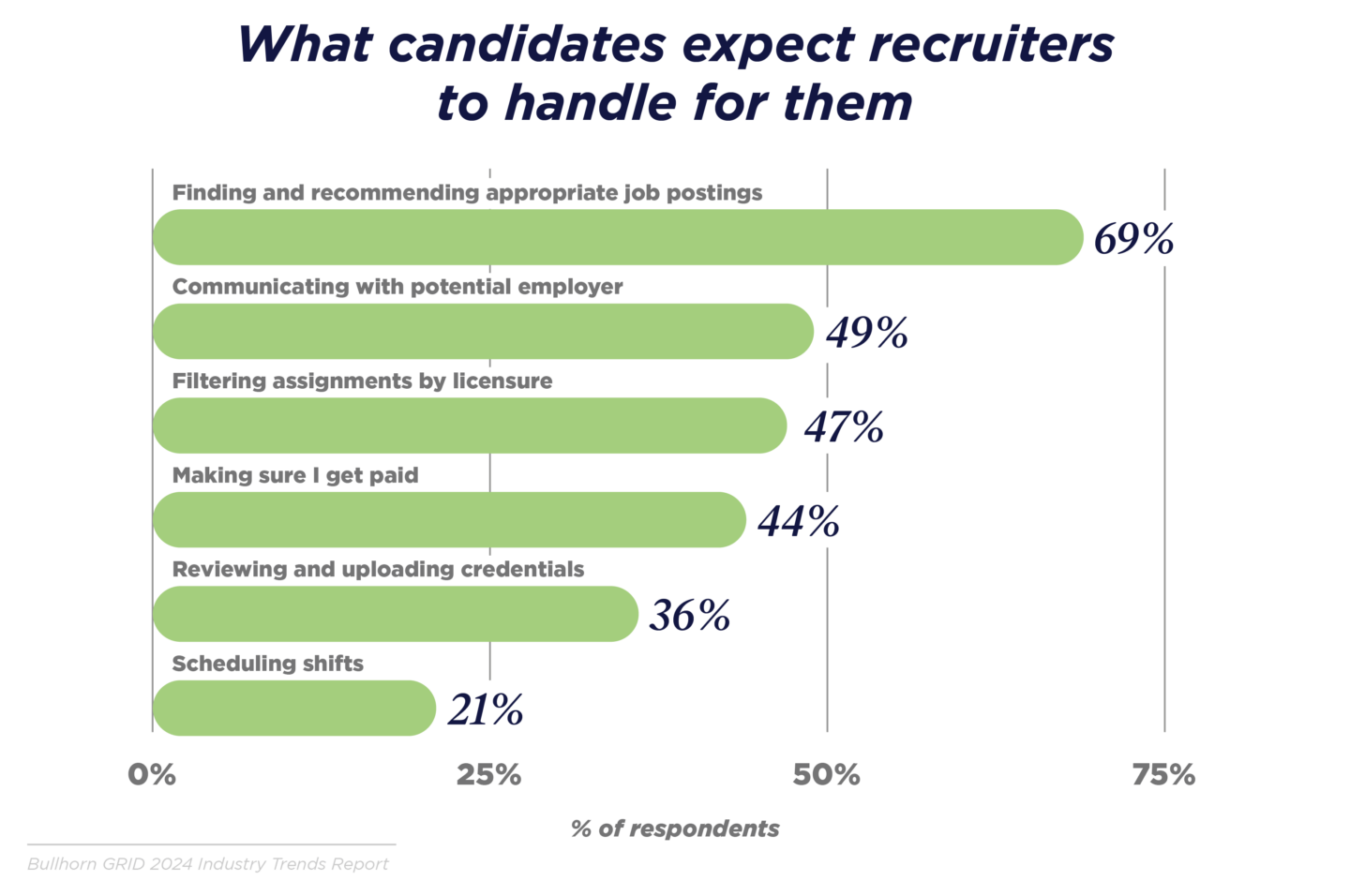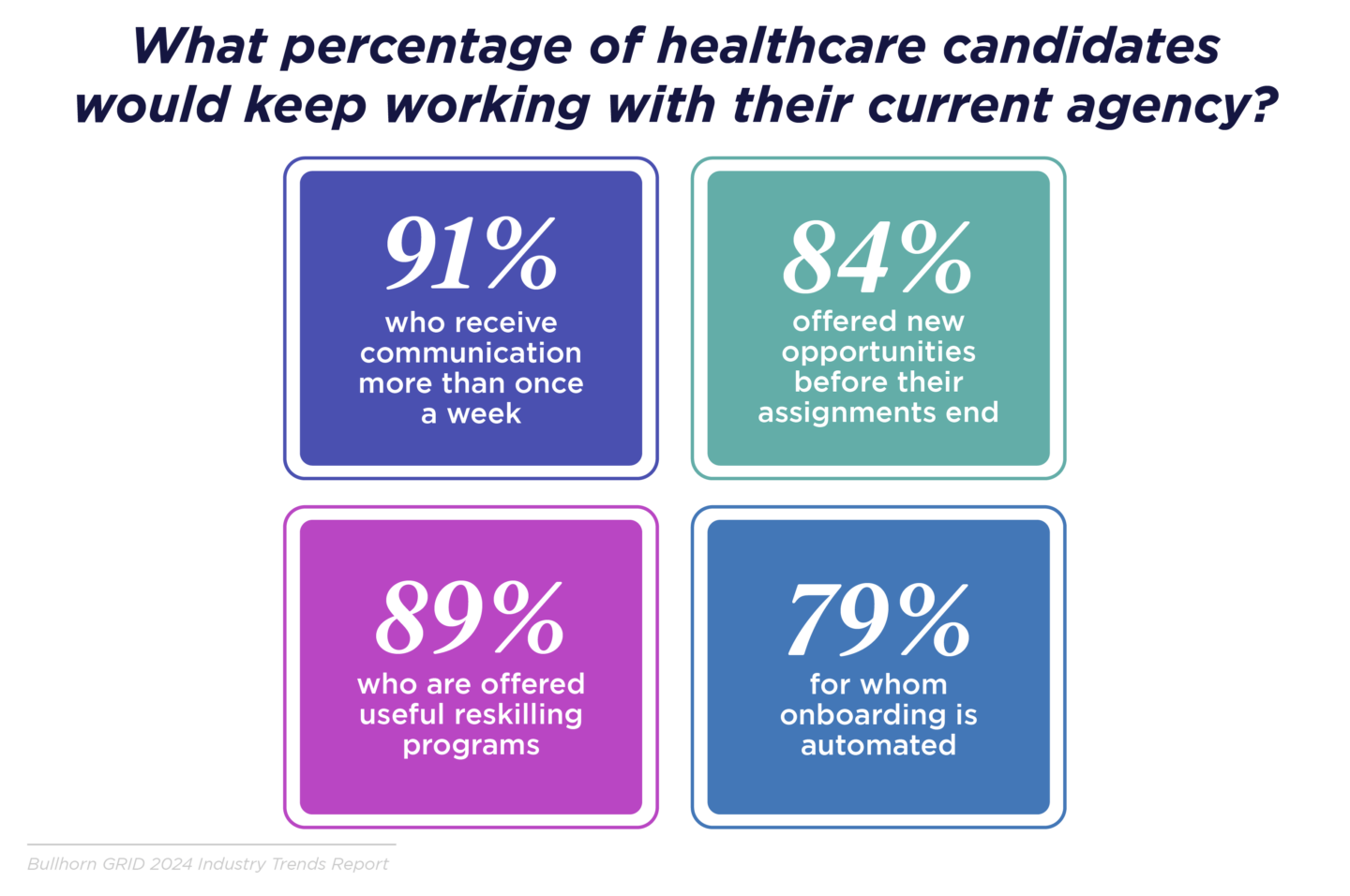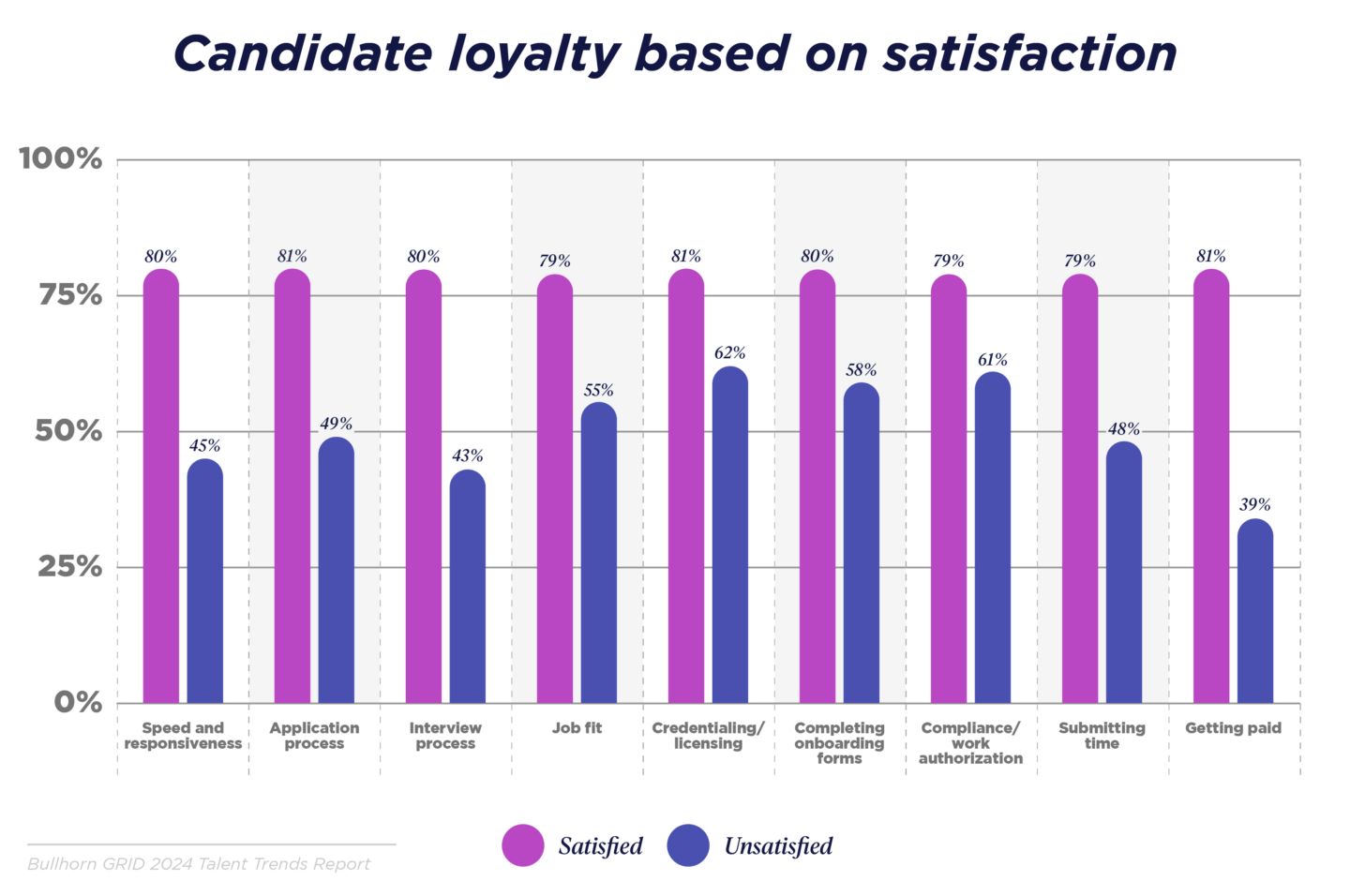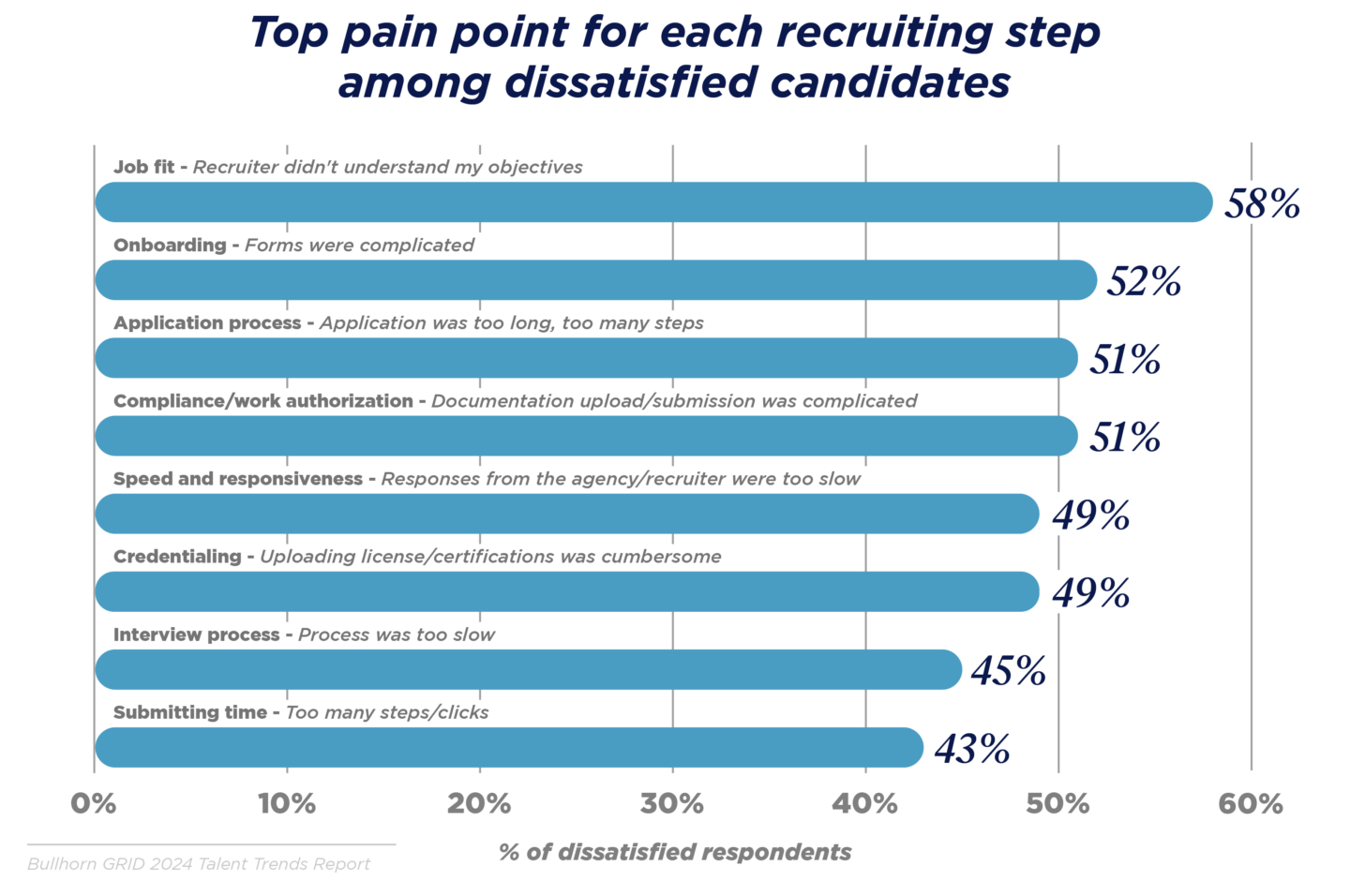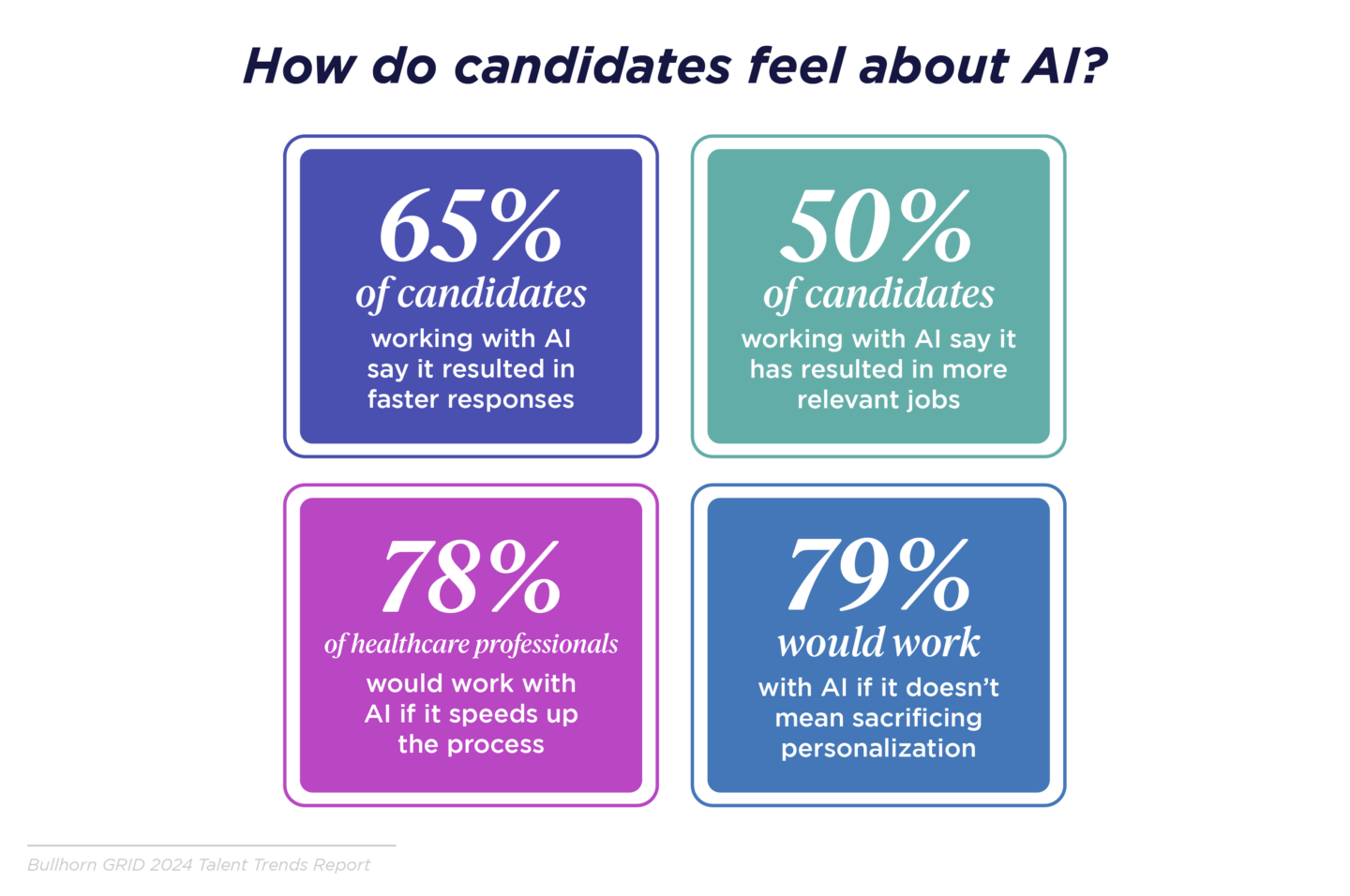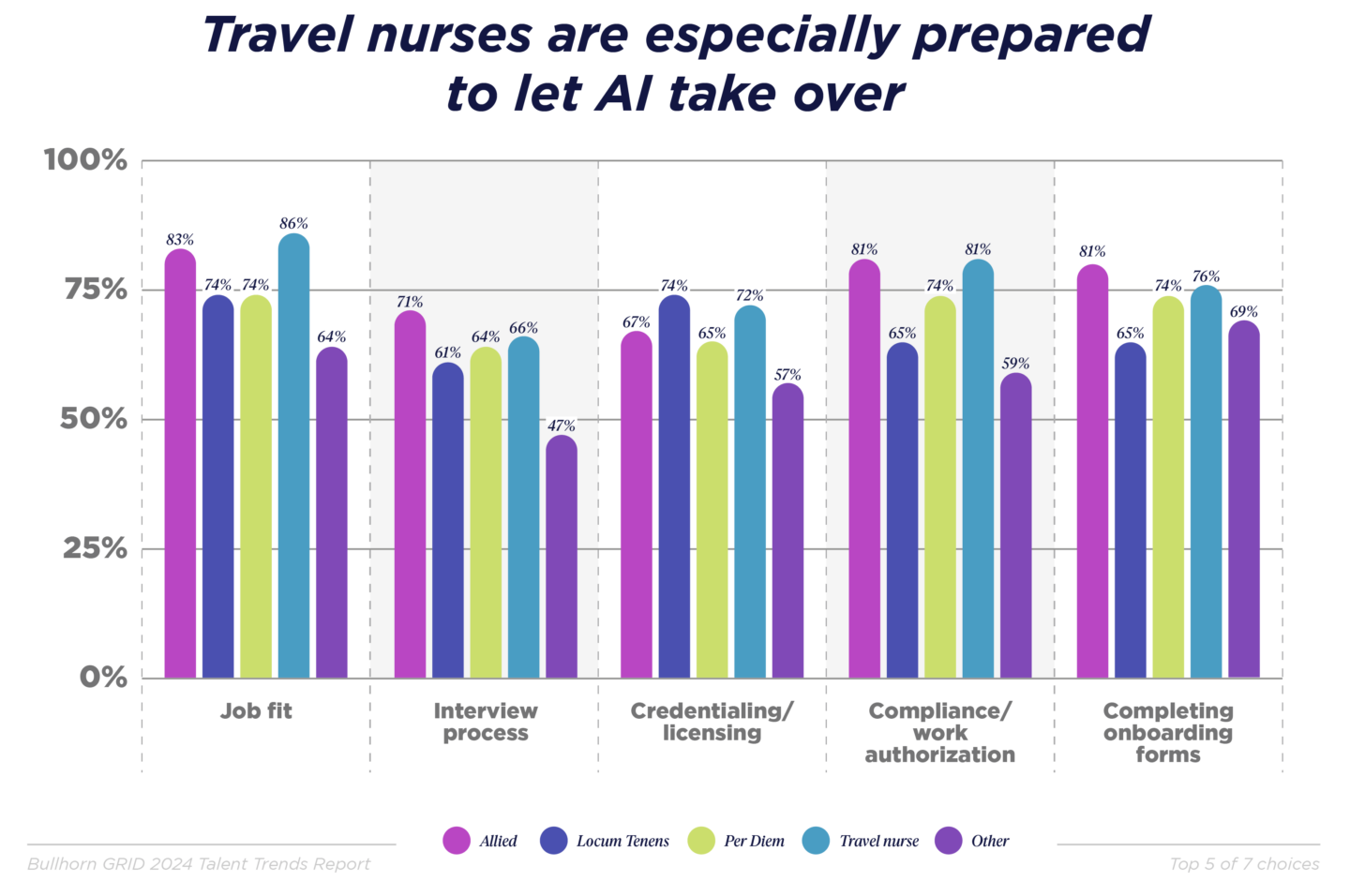Healthcare workforce trends
92% of healthcare contingent workers hope to leave the contingent workforce in the next two years. Most are seeking the stability and predictability of a permanent, full-time job; this is especially true for doctors. If even a small percentage of them follow through, it could significantly impact the healthcare contingent workforce and potentially exacerbate regional clinician shortages in some areas of the U.S.
What do healthcare professionals expect from staffing agencies?
Healthcare candidates are heavily influenced by past experience and available job opportunities. But they also expect recruiters to play a more active role in curating and coordinating their experience while on assignment as compared to candidates in other industries.
What drives loyalty among healthcare candidates?
Healthcare professionals want staffing agencies to wick away work and reduce friction in the recruitment process. They are looking for recruiters to optimize processes and make their experience easier and smoother throughout, especially with respect to credentialing.
78% of healthcare candidates would rely on AI if it speeds up the process
Overwhelmingly, healthcare contingent workers are willing to work with AI if it delivers value and gets them into the right jobs faster. As the US healthcare market struggles to balance out clinician shortages with faster credentialing and better job matching across regions, AI may be the single biggest tool to help the contingent workforce be part of the solution.

